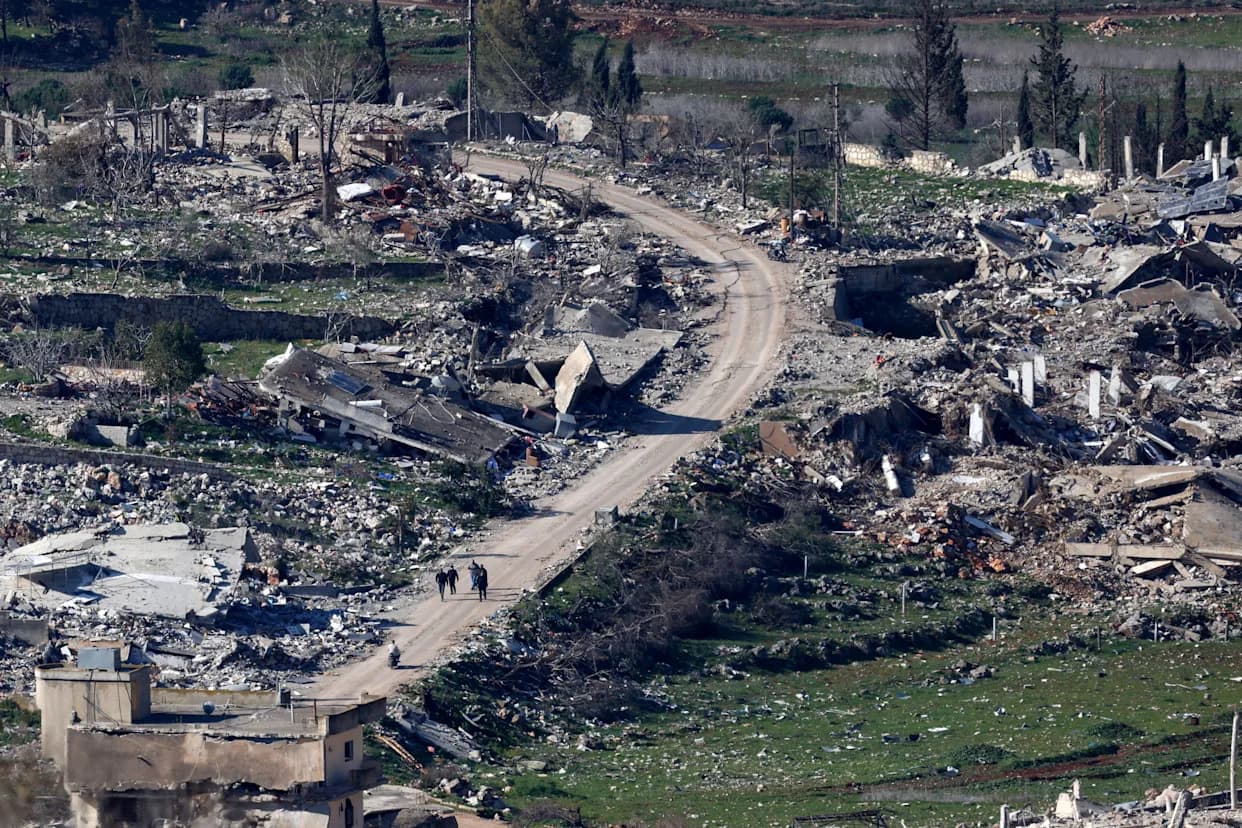Israeli strikes in southern Lebanon have continued despite a November ceasefire, according to residents, rights groups and local officials. Heavy machinery, prefabricated homes and civilian yards have been hit, with Amnesty reporting over 10,000 structures damaged and the World Bank estimating reconstruction at about $11 billion. Locals deny links to Hezbollah and say strikes and drone warnings have forced displacement and halted rebuilding plans. Political deadlock over Hezbollah's weapons and disputes about withdrawal and access have left reconstruction stalled and tens of thousands unable to return home.
“The War Has Not Ended”: Israeli Strikes Stall Reconstruction in Southern Lebanon

Summary: Residents and rights groups say near-daily Israeli strikes in southern Lebanon are preventing post-war reconstruction, destroying heavy machinery and prefabricated shelters and keeping tens of thousands displaced.
Campaign to rebuild met with threats and strikes
When civil engineer Tarek Mazraani began campaigning for the reconstruction of southern Lebanon, Israeli drones reportedly circled overhead and used loudspeakers to name him and urge locals to expel him. Mazraani, who denies any links to Hezbollah, says the attacks and warnings have forced him to relocate to Beirut and halted his plans to rebuild his hometown of Hula.
For us, the war has not ended. We can't return to our villages, rebuild or even check on our homes.
Targeting of civilian equipment and housing
Although a ceasefire reached in November was intended to halt more than a year of conflict with Hezbollah, residents report almost-daily Israeli strikes in southern Lebanon since then. Beyond strikes Israel says target militants, the military has also hit bulldozers, excavators and prefabricated homes, saying such items were being used to restore Hezbollah infrastructure. The Israeli army told AFP it believed certain sites were linked to Hezbollah, but it declined to provide detailed evidence linking named civilians to the group.
Human rights groups and local residents paint a different picture. Amnesty International estimated that more than 10,000 structures were heavily damaged or destroyed between the start of the ground offensive in October and late January, noting substantial destruction continued after the November truce. The World Bank has estimated reconstruction costs at roughly $11 billion.
Devastating losses for businesses and families
In the Msaileh area, strikes reportedly destroyed over 300 bulldozers and excavators stored in open yards. Yard owner Ahmed Tabaja, 65, said only five of 120 vehicles might be repairable after the attack, losses he valued at about $5 million. Nearby, Hussein Kiniar described both a wartime strike and a later attack after repairs, estimating combined losses of some $12 million for his family's garage.
The Israeli military said it had struck what it described as a Hezbollah engineering site storing vehicles intended to rebuild the group's capabilities. Owners and workers at the damaged sites insist they are civilian businesses with equipment stored openly and visible from the highway.
Disarmament, politics and reconstruction
The question of disarming Hezbollah has become central to the standoff over reconstruction. Under pressure from the United States and concerned about further escalation, Lebanon's government has indicated moves to begin disarming Hezbollah, a plan resisted by the movement and its allies. Israel says Beirut is moving too slowly; it also continues to maintain forces in five areas of southern Lebanon despite the ceasefire clause calling for withdrawal. Hezbollah, for its part, demands that Israel pull back, stop attacks and allow reconstruction to start before discussing its arsenal.
After the 2006 war, Hezbollah led much of the south's rebuilding, with significant funding from Iran. This time the group's finances are under heightened scrutiny, and it has called on the Lebanese state to take the lead in financing reconstruction. So far, Hezbollah has limited compensation to its own supporters for rent and repairs.
Daily life remains disrupted: olive farmer Mohammed Rizk, 69, has not tended his grove for three seasons and now lives near Nabatiyeh after being displaced from his border village. For many residents, the conflict will not feel over until they can safely return, rebuild and resume their livelihoods.
Humanitarian impact and next steps
Officials in Beirut have appealed for international assistance, particularly from Gulf states, to fund reconstruction. Rights groups, local residents and reconstruction advocates emphasize the need for safe, verified access to damaged areas so rebuilding can begin and displaced families can return. The overlapping security, political and diplomatic disputes mean reconstruction remains stalled until parties agree on both security arrangements and funding.
Help us improve.




























